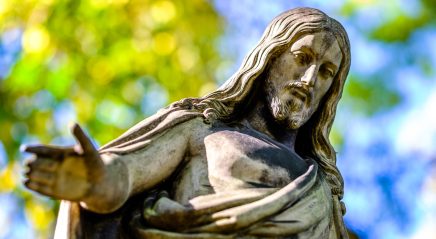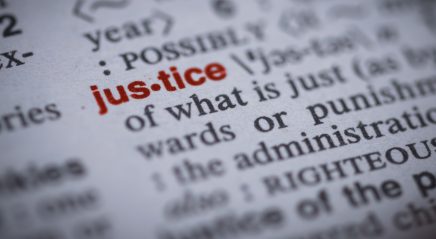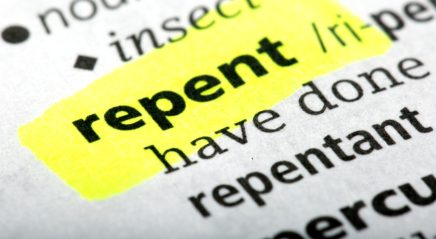Lectionary for Oct. 29, 2023
22nd Sunday after Pentecost
Leviticus 19:1-2, 15-18; Psalm 1;
1 Thessalonians 2:1-8; Matthew 22:34-46
Now that I’ve finally submitted the delayed grades for incomplete projects from the summer semester and am looking forward to this term’s midterm projects, I find myself thinking a lot about evaluation. When I give my students assignments I, of course, evaluate their performance. I’m testing them to see how they are learning. But in another way, each time students come into my classroom, either virtually or in person, they are evaluating me.
Can I really offer them something that relates to their lives? Can I teach them Bible or theology in a way that will help them interpret ancient Scriptures for congregations decades in the future? Can I keep class interesting enough so they don’t fall asleep? In every classroom exchange, we test and evaluate each other. In this week’s lectionary readings, Jesus and his interlocutors test and evaluate each other too.
First, we need a bit of context. Jesus had been verbally sparring with opponents for much of the preceding chapter. First the Pharisees and Herodians teamed up to rhetorically defeat Jesus—rather like the Sharks and Jets teaming up to pull a fast one on Officer Krupke in West Side Story. Seeing that Jesus overcame his first set of challengers, several Sadducees sought to test Jesus. However, Jesus defended standard Pharisaical priorities like the belief in resurrection. After Jesus’ response to the Sadducees silenced them, the Pharisees decided to give Jesus another chance. This is where this week’s lectionary passages start.
Jesus passed the Pharisees’ test with flying colors. Not only did he defend the idea of the resurrection, but he also prioritized the laws in the correct order. However, when Jesus tested the Pharisees, they earned a B- at best.
One Pharisee decided to test Jesus to see if he interpreted the law in ways compatible with the Pharisees. He asked what the most important law was. It’s important to see that this is no longer a trap, as above—it is a test. Has Jesus understood the law? Has he taught the law correctly? A simple question about the ordering of the laws of Moses would determine compatibility between Jesus and his hearers.
For much of his ministry, Jesus had taught about the proper ordering of commandments. Earlier, in Matthew 12, he gave two intentional examples of how love for neighbor and preservation of life were more important than observing Sabbath regulations. Jesus allowed his disciples to harvest and thresh grain on the sabbath to satisfy their hunger (he himself refrained). Later he healed a man’s hand on the sabbath as an example of valuing life over observing the sabbath. Jesus and the Pharisees had been in long conversations about which laws are the most important.
Returning to Matthew 22, Jesus quoted Deuteronomy 6:5—“Love the Lord your God with all your heart and with all your soul and with all your mind”—as the greatest commandment. Then he went further to say that the last part of Leviticus 19:18 is the second most important commandment: “Love your neighbor as yourself.” Jesus said the rest of the law and prophets hang on these two commandments. This was, apparently, a satisfactory answer and mirrors the response that Rabbi Hillel gave to a similar question a generation earlier: “What is hateful to you, do not do to your neighbor. That is the whole Torah; the rest is the explanation of this—go and study it!” (BT Shabbat 31a). The Pharisees seemed to have no problem with this answer.
But Jesus wanted to test the Pharisees to see if they understood who they were questioning, so he asked whose son the Messiah is. The Pharisees, ever the excellent Bible students, replied that the Messiah would be the Son of David (Amos 9:11; Isaiah 11:1, 10; Isaiah 16:5; Jeremiah 23:5; Jeremiah 33:14-26; Zechariah 12:8). Jesus wanted to push them further to see if they would accept his title as God’s son. He quotes a Psalm of David:
The Lord says to my lord:
“Sit at my right hand
until I make your enemies
your footstool” (110:1).
Surely David wouldn’t call his descendant “lord,” would he? The messiah must have an ancestor greater than David. And who could be greater than God? No one could—or would—answer Jesus after that. They didn’t even attempt to pass his test.
In this Gospel reading, Jesus passed the Pharisees’ test with flying colors. Not only did he defend the idea of the resurrection, but he also prioritized the laws in the correct order. However, when Jesus tested the Pharisees, they earned a B- at best. They weren’t wrong—the Messiah was a descendant of David, after all. But he pushed them to see something that they weren’t able to admit: Jesus is God’s son as well. Jesus wasn’t giving them a difficult exam, but merely challenging them to accept what he had been saying, and that his disciples already knew: Jesus is the Messiah, the Son of the living God (Matthew 16:16).










